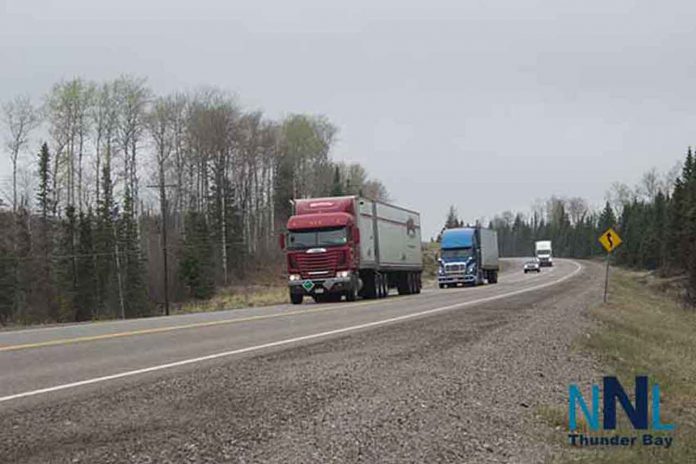There’s a reason why the federal government has doubled down on supporting truck drivers: Canada needs more of them.
In February, the country’s transportation division announced $46.3 million in funding for Trucking Human Resources Canada, under the Sectoral Workforce Solutions Program. The project, called Driving Economic Recovery, will provide wage subsidies and training to support the recruitment, training, and onboarding of up to 1,400 new truck drivers and 1,200 workers for other in-demand occupations within the trucking sector.
Omar Alghabra, the Minister of Employment, Workforce Development and Disability Inclusion, made it clear why the move is so necessary.
“Truck drivers are essential to our economy and our supply chains,” Alghabra said in a press release. “The Trucking HR Canada’s Driving Economic Recovery project is an innovative solution that supports skills development and job employment readiness for truckers to fill good, middle-class jobs across the country. Our government’s investment in this initiative demonstrates our continued commitment to strengthening our transportation supply chain, will allow us to continue to deliver affordable and timely goods to Canadians and will help build an economy that works for everyone.”
This is hardly news for Challenger Motor Freight. Founded over 40 years ago, it’s one of Canada’s largest and oldest trucking companies.
However, like many other companies in the transportation industry, Challenger is facing the difficult task of finding and retaining qualified truck drivers. This shortage of drivers impacts not only Challenger, but the entire Canadian trucking industry.
“This shortage has implications far beyond our own industry,” Challenger Motor Freight’s Dan Einwechter said. “It affects every part of our economy, not to mention commerce with the United States.”
A statement from the Canadian government said the new funding would address several issues in the industry. That includes removing inconsistencies in driver training by developing a national standard that will support transferable skills and bridge the gap between entry-level training and employability throughout Canada.
Up to 2,600 participants — with an emphasis on women and other equity-deserving groups — will receive training, on-the-job work experience through the program. They will also get other support, such as travel and living expenses, to prepare them for a career in the trucking sector.
The trucking industry is an essential part of Canada’s economy, leaders at Challenger Motor Freight said.
They pointed to Over 90 per cent of all consumer goods are transported by trucks, including food, clothing, and electronics, according to a 2020 report from Statistics Canada.
“Without truck drivers, it would be impossible to transport these goods across the country,” Einwechter said. “The shortage of truck drivers is not only impacting the transportation industry, but it’s also having a ripple effect on other industries. For example, if a company cannot get their goods transported, they may have to delay production, which can ultimately impact their bottom line.”
Another issue is the aging workforce.
According to a 2019 report by Trucking HR Canada, more than 30 per cent of truck drivers are over 55 years old, less than 18 per cent are from the Millennial generation, and just 3 per cent of drivers identify as female.
That means that many truck drivers will be retiring in the next few years. The report also found that the industry is not attracting enough young people to replace those who are retiring.
“The pandemic has made the shortage of truck drivers even worse,” Einwechter said. “It caused a surge in demand to address the increased need for e-commerce and home delivery. It’s also put more pressure on trucking companies, which were already dealing with the driver shortage.”
The time to ensure national support of the trucking industry is as important now as ever — for Challenger Motor Freight and all of Canada’s trucking companies, Einwechter said.
“It’s not only affecting the transportation industry, but it’s also having a ripple effect on other industries and the economy as a whole,” he said. “It’s time to make sure we have the drivers we need for the healthy economy all Canadians deserve.”






